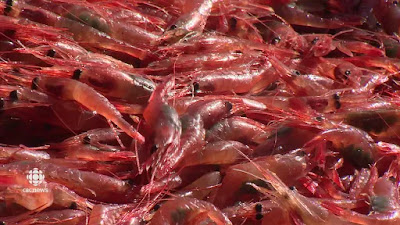Spanish trawler cited for illegal fishing on Grand Banks
The infractions were issued against the Pescaberbes Dos on Feb. 3rd, although they were only made public on the federal Department of Fisheries and Oceans website in mid April.
That said, DFO is getting better at reporting illegal fishing. Read here.
Still, details of the latest infractions – the first of 2012 – are scarce.
An inspection determined that 134.7 tonnes of “product” (no mention of the particular fish species) aboard the Spanish ship wasn’t properly labelled.
It was also determined that 30.2 tonnes of turbot was not marked as having been caught on the Grand Banks.
In the past, foreign trawlers have tried to pass off fish caught on the Grand Banks as fish that had been caught elsewhere in the world’s oceans as a way to sidestep NAFO rules.
The Northwest Atlantic Fisheries Organization monitors fishing outside Canada’s 200-mile limit, but it’s generally seen as toothless, unable to enforce the quotas it sets.
My office is in the process of contacting DFO to formally request further details on the infractions.
***
In other fishery news from Ottawa, Dr. Ken Frank, a scientist with DFO in Ottawa, held a lecture recently entitled, Recovery of North Atlantic groundfish: real or imagined?
Frank stated clearly that while cod stocks on the Scotian Shelf off Nova Scotia have shown signs of recovery, stocks on the Grand Banks – most notably, the northern cod zone, which takes in the waters off the northeast coast of Newfoundland and Labrador - remain in desperate shape.
It’s probably safe to say that illegal foreign fishing has hampered recovery.
Leading Canadian fishery scientist Dr. Jeffrey Hutchings recently called for an inquiry into the Newfoundland and Labrador fishery.
Hutchings, who recently chaired the Royal Society of Canada Expert Panel on Sustaining Canada`s Marine Biodiversity, said an inquiry is necessary to learn from the mistakes of the groundfish collapse so it never happens again, and to start the rebuilding process.
“Despite the collapse of northern cod and several other fish in the early 1990’s, these stocks still have no rebuilding plans, rebuilding timelines, or science-determined recovery targets,” said Dr. Hutchings.
“While other cod fisheries, such as Norway’s, have seen tremendous rebound, most of the stocks off Newfoundland and Labrador remain at critically low levels.”



Comments